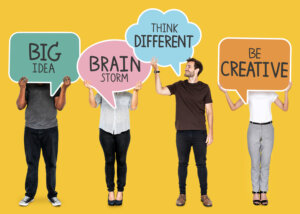To make it happen in your career, you need to plan your career.
Career planning is a process of understanding oneself, exploring career options, making wise decisions and moving forward. What complicates it is that people, careers and organizations are constantly changing.
Therefore, career planning is not something done one time early in your career. Rather, it’s an ongoing process throughout your life. It doesn’t matter what’s your profession, your industry or your place of employment. The reality is lives change, professions change, industries change, organizations change and so your career will change. You can bet on it!
Who Am I?
The foundation of career planning, today and for the future is based on a very clear understanding of who you are as an individual and as a professional person. As a career coach, I’ve found that the greater the congruency between who you are – your skills, values, interests and personality – and your career choices, the greater personal career satisfaction.
Since everyone has a unique mix of skills, strengths and limitations that change over time, the first step in career planning is to look at who you are and what your career is all about. Also, gaining clarity about yourself will help you make better decisions in the future when challenges and opportunities emerge.
Identity Questions
Here are some simple, but profound, questions to start you on this journey. You may want to choose someone, or several people, to help you reflect and provide additional feedback.
- What do I see as my personal strengths?
- What are some of my personal limitations?
- What are my core values – what’s important to me?
- What are my abilities – things I’m good at and enjoy doing?
- What have I done, or I am doing now, that makes me feel proud?
- What are the significant influences on my life that have affected my career?
- Do I have talents that I feel are underdeveloped – how can I start utilizing them?
- What are my current obligations or commitments? How might they affect my career?
- If I could turn the clock back, what career choices or decisions would I make differently?
- If I could turn the clock ahead, what are some things I would like to accomplish in my life?
What Do You Know?
What have you learned about yourself from this self assessment? Perhaps you would like to have deeper insights. There are career assessment tools that provide personalized information on skills, interests, personality and values or career anchors. Would you like to know more, then let’s start a dialogue.
My next post on career planning will examine the variety of career options that one can choose from during different stages of one’s life.
Do you want to develop Career Smarts?
- For more resources, see the Library topic Career Management.
- Start with the Career Success System.
- Sign up for Career Power: 101 success tips.
- Fast track your career. Be part of a Success Team.
- Need a speaker? Get the Edge Keynotes-webinars-workshops.
- Find career and leadership boosters in the Smart Moves Blog.
- Copyright © 2010 Marcia Zidle career and leadership coach.
 Sections of this topic
Sections of this topic
















